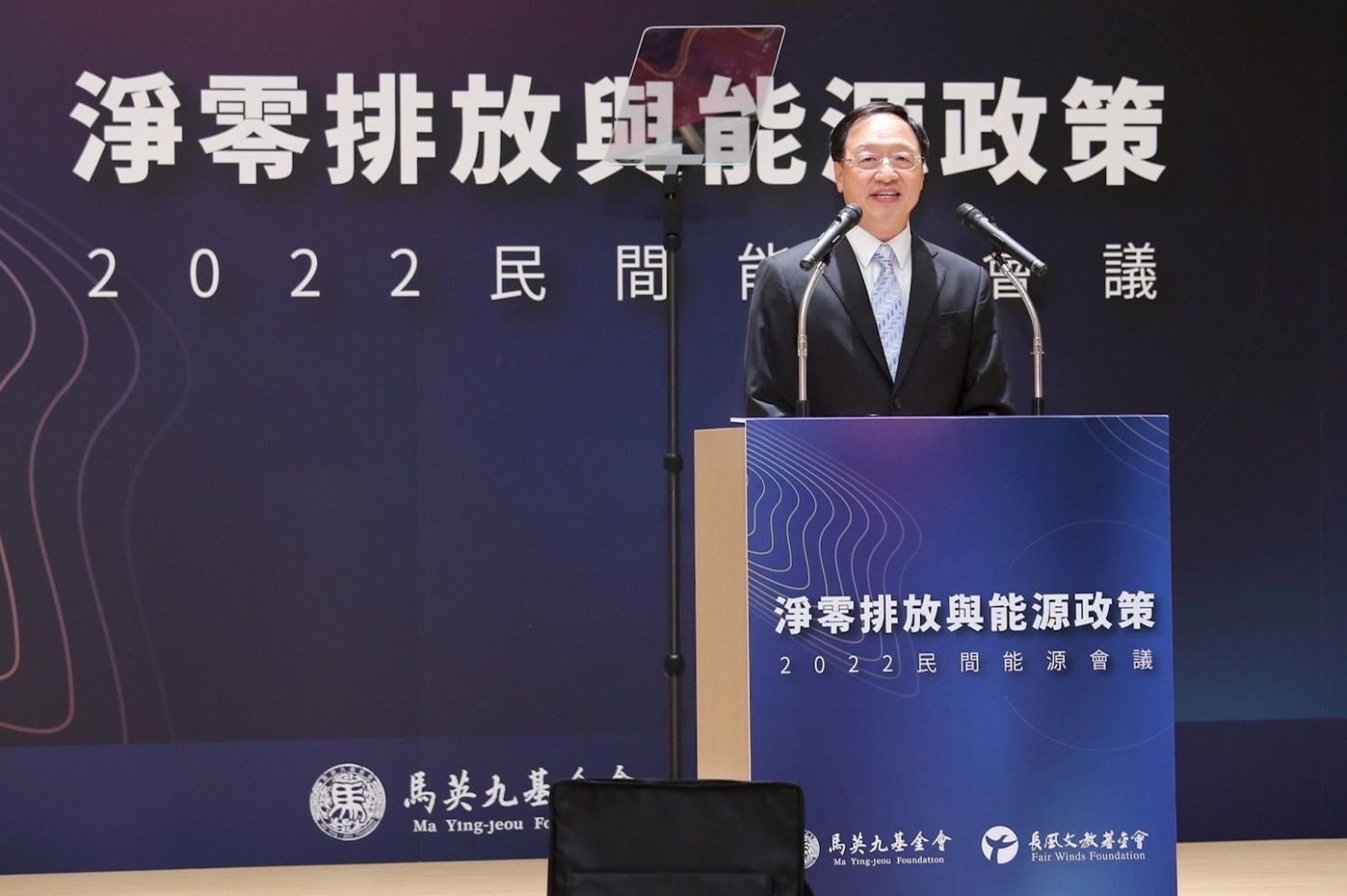
Former President Ma:Taiwan Should Not Stick to "Nuclear-Free Homeland" Concept
The Storm Media, July 16, 2022
On July 16, at an energy conference co-hosted by the Ma Ying-jeou Foundation and the Fair Winds Foundation, former President Ma Ying-jeou indicated that Japan has decided to reactivate nine nuclear power units at the end of this year in order to stabilize the energy supply. President Yun Seok-yeol also declared that South Korea will raise the ratio of its nuclear power generation to 30 percent of the total power output before 2030. At the time when both Japan and South Korea are determined to actively develop nuclear power, Taiwan should rethink its non-nuclear policy, Ma emphasized.
What is more, Ma said, Taiwan’s “Net-Zero Carbon Emissions Roadmap 2050” proposed by the Executive Yuan last March is impossible to achieve, if we exclude nuclear energy, the least carbon emission option. Ma criticized the fact that the Tsai administration insistence on the non-nuclear policy ignores totally problems in Taiwan such as the vulnerability of the grid, shortage of power, and unstable supply. On top of that, President Tsai spent billions to develop renewables with a view to replacing nuclear power, but not coal-fired power. That is not what advanced countries will do.
Ma reiterated that, to solve Taiwan's energy problem, we should not stick to the rigid “Nuclear-Free Homeland” policy. Instead, we should transform the mindset of the government. "To march forward, Taiwan should transform its energy policy," said Ma.
Chairman Jiang Yi-huah of the Fair Winds Foundation also indicated in his opening remarks that the Tsai administration should respect the result of the 2018 referendum and review and adjust its energy policy accordingly. Unfortunately, however, even after five massive power outages and numerous regional outages, the Tsai administration still went its own way and insisted on executing its "Nuclear-Free Homeland 2025” policy.
As such, Jiang predicted that both the 2050 energy transition policy and net-zero emissions roadmap will fail and power blackouts and shortage will definitely occur in 2025. As a result of these failed policies, people of Taiwan will suffer from the ecological deterioration and respiratory diseases.
To substantiate his view, Jiang provided some concrete data. Jiang indicated that President Tsai’s "energy transition" intends to lower the percentage of nuclear power generation from 12 percent of the total in 2016 to 0 percent; renewables from 4.6 percent to 20 percent; coal-fired power from 47 percent to 30 percent; and gas from 34 percent to 50 percent, in 2025. However, last year we saw coal-fired power still takes up 44 percent, a decrease of 3 percent only, and gas only increases to 37 percent. In addition, 10 percent of the total power generation last year still depended on the nuclear power. This means it is nearly impossible to increase the ratio of renewables to 20 percent in 2025.
Jiang emphasized that we don't have to wait until 2025 to know that President Tsai’s energy transition policy is a failure. Should nuclear power plants close one by one in the next three years, we could be 100 percent sure that after 2025 Taiwan will have power blackouts and shortages. The problem will not be how much power price increases or if Taiwan Power Company will bankrupt. The problem will be "power shortage!"
In addition, at the end of last year, COP 26 declared in Glasgow's climate conference that we have to reach "Net-Zero Emission" by 2050, given the increasingly serious climate change. Jiang indicated that a very important objective in the Glasgow conference; namely, the coal-fired power's ratio should be reduced to zero. However, at the current ratio of 44 percent by the coal-fired power in Taiwan, how can Taiwan reduce the ratio to half in 2030, and to zero in 2050?
In response to the Glasgow conference, the Executive Yuan set the long term target in 2050 as follows: 60 to 70 percent of renewables; 9 to 12 percent of hydrogen power; 20 to 27 percent of coal-fired power plus carbon capture; 1 percent of pumped-storage hydro power. That means renewables should increase from the current 6 percent to 65 percent; and the coal-fired power plus carbon capture should decrease from the current 80 percent to 25 percent.
Chairman Jiang criticized that the targets presented by Tsai's Administration are very glamourous: 100 percent zero carbon building, 100 percent commercial ratio for electric cars and bikes, etc. But where are the concrete measures and targets for every five years?!
Moving toward the direction of net-zero emission, most countries realize that depending only on renewables will not succeed. Therefore, countries like Japan, South Korea, France, Finland all decided to increase the ratio of nuclear power. The European Parliament even approved on July 6 “the reclassification of nuclear power as green energy” proposed by the European Union. Only Taiwan’s Tsai administration still rigidly upholds its anti-nuclear ideology and proposes a net-zero emission policy without having recourse to nuclear power.